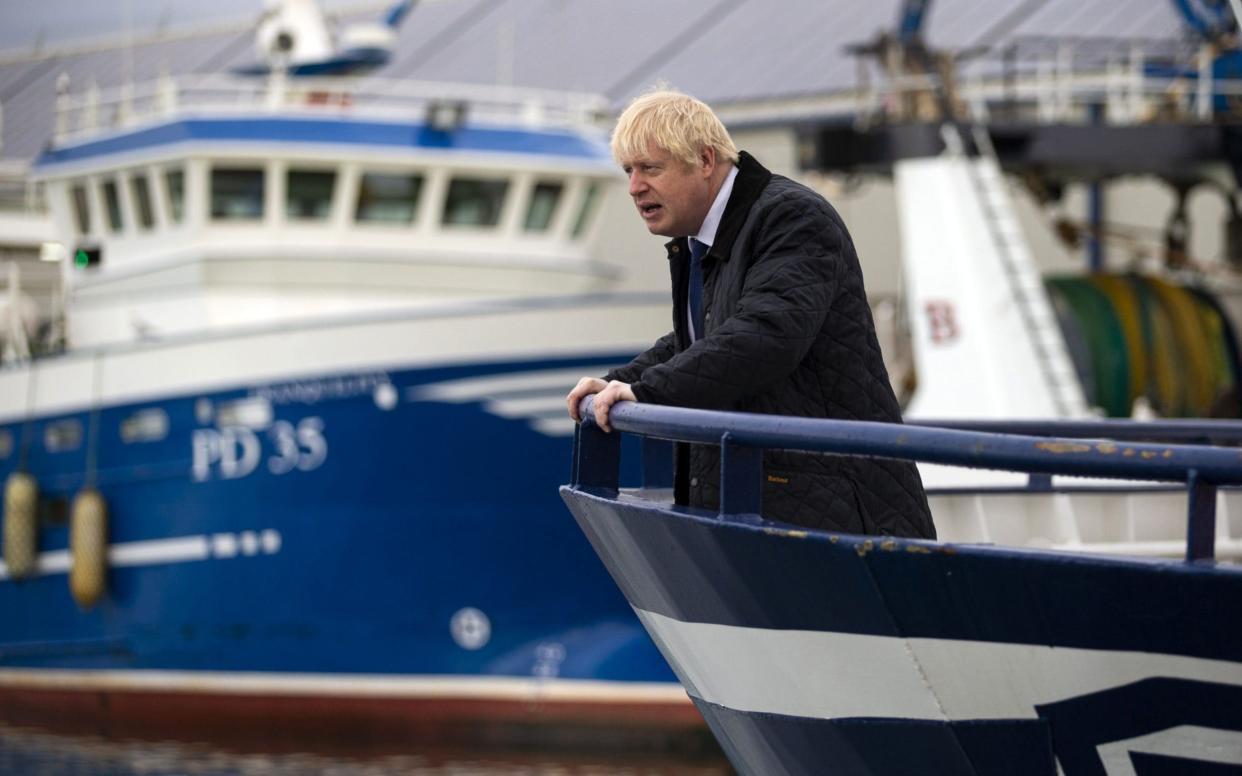Brussels 'caves on UK fishing demand' as Brexit talks intensify

European Union negotiators have conceded a major British demand on fishing rights after Brexit, it was reported on Monday.
Brussels was said to have caved on a long-standing UK demand that future fishing opportunities be calculated on the basis of zonal attachment, although that was denied by some EU sources.
British fishermen will have a larger share of the catch under zonal attachment than under the historic catch patterns that form the basis of the EU's Common Fisheries Policy. Zonal attachment is a system that calculates a share of the catch based on which waters the fish are in.
The concession would allow Britain to claim victory in its goals of taking back control of British waters and significantly increasing the amount of fish caught in UK waters by British fishermen.

Fishing is one of the three major obstacles to getting the Brexit trade deal done by mid-November so it can be ratified before the end of the year and prevent a no deal Brexit.
EU and UK negotiators are in intensified talks in Brussels, which are expected to close on Wednesday. That could be followed by more secret daily talks, or the negotiators could defer to their political leaders to try and bridge the remaining gaps between the two sides.
Bloomberg reported that the two sides planned to defer decisions on the exact allocation of catch to EU boats. Rather than a breakthrough, it was a step towards an agreement in which the two sides were previously diametrically opposed, it said.
EU diplomatic sources warned that a compromise would not fly. Other EU sources suggested the report was "far off the mark" and warned that fishing was still very much an open issue before the weekend.
"They can't sell a deal to their voters that doesn't include tangible prospects for their fisherman. Unless the fishermen can be told what they will be allowed to catch, there won't be a deal," one diplomat said.
Brussels will need to know how much quota the application of zonal attachment translates to, because it is mulling redistributing its bloc-wide share of fishing opportunities to mitigate the impact on fishermen dependent on UK waters.
Watch: What is a no-deal Brexit?
Fishing is a relatively small sector of the UK and EU economies but has become a politically-charged totemic issue for London and countries such as France, which are dependent on the catch from British waters.
The EU has warned that without a deal on fishing there will be no trade agreement with Britain, and is understood to be using access to its energy market as leverage to force UK concessions.
"We're not commenting on ongoing negotiations, but our position on fisheries has been clear from the start," a UK Government spokesman said before calling for a Norway-style fishing agreement.
"We are asking for a simple, separate fisheries framework agreement which reflects our rights under international law, and which provides for annual negotiations over access and sharing opportunities based on the scientific principle of zonal attachment."
Michel Barnier, the EU's chief negotiator, has previously signalled that zonal attachment could be part of the final fishing deal but that provisions needed to be made to protect ancient fishing rights and mitigate the economic impact on EU coastal communities.
Mr Barnier was originally told to secure EU boats' continued access to UK fishing waters under the same conditions as before Brexit.
The EU is still pushing for a longer-term agreement than annual negotiations, although a possible compromise could be to have multi-year deals for certain kinds of fish and annual ones for other stocks. Britain has previously offered a three-year transition period for fishing with the UK quota increasing over time.
The potential compromise will also only hold if an agreement can be found in other controversial areas, such as the deal’s enforcement and the "level playing field" guarantees.
Mr Barnier and David Frost, the UK's chief negotiator, agreed that "nothing is agreed until everything is agreed" when setting out joint rules for the new phase of intensified talks.
Sir Keir Starmer, the Labour leader, urged the Prime Minister to cut a final deal with Brussels on Monday. He told the CBI conference that Boris Johnson needed to act on his election pledge to deliver an exit agreement.

 Yahoo News
Yahoo News 
